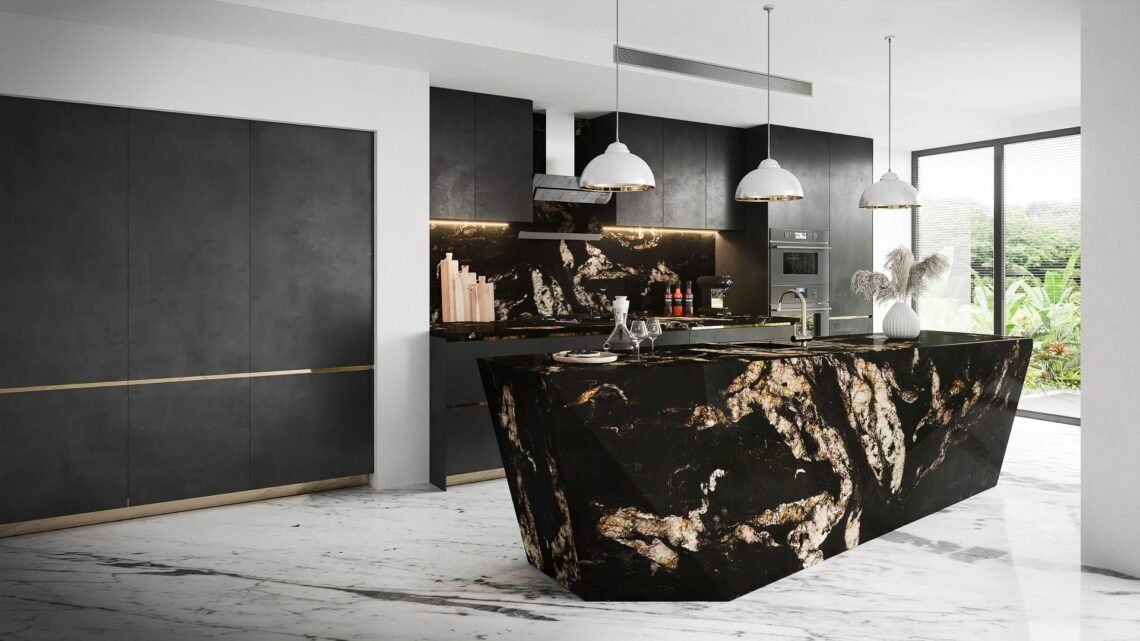When designing a modern kitchen, aesthetics and functionality must go hand in hand. One of the most crucial decisions homeowners face is choosing the right material for their kitchen platforms. Marble, known for its timeless beauty and elegance, remains a popular choice. However, concerns about staining often make buyers hesitant. To overcome this, it’s important to understand how to select stain-resistant marble that ensures durability without compromising on style. If you’re sourcing high-quality options, working with a trusted Natural Stone block supplier in India can make all the difference.
Why Stain Resistance Matters in Kitchen Marble
The kitchen is a high-traffic area prone to spills and splashes. From oil and wine to acidic juices and spices, various substances can easily stain marble if it’s not properly selected and maintained. Stain-resistant marble not only preserves the pristine look of your countertops but also reduces the time and effort required for cleaning. This ensures your kitchen remains hygienic and visually appealing for years.
Primary Factors to Consider for Stain-Resistant Marble
1. Choose the Right Marble Type
Not all marble is created equal. Some varieties are naturally denser and less porous, making them more resistant to stains. For instance, marbles like Makrana and Carrara have lower porosity compared to softer varieties. Dense marble types absorb fewer liquids, reducing the chances of stains setting in.
2. Understand the Importance of Finishes
The finish of marble plays a significant role in its resistance to stains.
- Polished Finish: Creates a smooth, reflective surface that repels liquids more effectively.
- Honed Finish: While it offers a matte appearance, it’s slightly more porous and may require additional sealing.
- Leathered Finish: Provides a textured surface with moderate stain resistance but adds a unique aesthetic appeal.
Selecting the right finish depends on both the functional needs and the visual preferences of your kitchen space.
3. Sealants: The Invisible Shield
Even the most stain-resistant marble benefits from a high-quality sealant. Sealants act as a protective layer that prevents liquids from penetrating the surface. Ensure that you use food-safe, penetrating sealers that last longer and maintain the natural look of the stone. Periodically resealing your marble platforms—typically every 12 to 18 months—further enhances their resistance.
Evaluating Marble Quality for Stain Resistance
Working with experienced suppliers who have in-depth knowledge about stone characteristics ensures you receive top-grade materials. Suppliers like Exotic Stone Supplier in India offer rare and durable stone varieties ideal for high-use spaces like kitchens. Always request detailed product specifications, including porosity tests and maintenance guidelines, before making a purchase.
Key Tests to Assess Marble Stain Resistance
- Water Absorption Test: Place a few drops of water on the marble surface. If it absorbs quickly, the stone is more porous and prone to staining.
- Acid Test: Apply a few drops of lemon juice to check if the marble reacts. Etching or dull spots indicate lower resistance to acidic substances, a critical factor in kitchen environments.
- Oil Resistance Test: Apply a small amount of cooking oil. If a dark spot forms quickly, the marble lacks sufficient natural resistance.
These simple tests, combined with expert guidance, help you choose a marble variety that balances beauty with practicality.
Design Considerations to Minimize Staining
Apart from selecting the right stone, thoughtful kitchen design also contributes to minimizing stains.
- Opt for Slightly Sloped Counter Edges: This prevents liquids from pooling on the surface.
- Install Proper Backsplashes: Protects wall areas from cooking splashes and helps maintain cleanliness.
- Use Trivets and Coasters: Placing hot utensils and acidic food items directly on marble can weaken sealants over time. Using protective accessories extends the stone’s lifespan.
Top Stain-Resistant Marble Varieties for Kitchens
- Makrana Marble: Known for its high density and low porosity, making it highly resistant to stains.
- Carrara Marble: With a delicate gray veining and excellent durability, it’s a favorite for contemporary kitchens.
- Statuario Marble: Offers a stunning aesthetic with enhanced stain resistance when sealed properly.
- Quartzite and Sandstone Alternatives: For homeowners exploring alternatives, collaborating with a reliable Quartzite/Sandstone supplier in india provides access to stones that mimic marble’s beauty while offering greater stain resistance.
Maintenance Tips for Long-Term Stain Resistance
- Regular Cleaning: Wipe spills immediately using a pH-neutral cleaner to prevent stains from setting in.
- Avoid Abrasive Scrubs: These can scratch the marble surface and make it more vulnerable to staining.
- Scheduled Resealing: Keep a maintenance calendar to reseal marble platforms as per manufacturer recommendations.
- Use Cutting Boards: Direct cutting on marble can lead to micro-scratches that absorb stains over time.
Final Thoughts
Selecting stain-resistant marble for kitchen platforms requires careful evaluation of stone types, finishes, and maintenance practices. By prioritizing durability and stain prevention, you ensure that your kitchen remains both functional and beautiful for years to come. Collaborating with established industry experts like Galaxy Exports guarantees access to premium stone varieties and professional advice, making your investment worthwhile.





